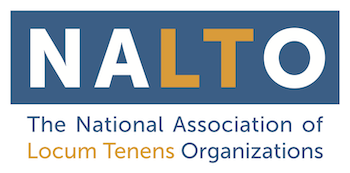Consider part-time locum tenens to boost income
When the economy is unstable, as it is now and most likely will be for some time to come, even high-income professionals feel the impact. An economic downturn probably will not mean, as it does for many people, that doctors will have to cut back on essential purchases such as food, clothing, and fuel. But if you are watching your retirement account balance fluctuate wildly and have seen the value of your home decline over the last couple of years, you may be feeling the pinch—if only in terms of your ability to plan for the future and afford a few luxuries.
If earning an extra $5,000, $10,000, or $20,000 this year could be the deciding factor in whether or not you will add to your retirement plan, contribute to a child's college fund, complete a costly home repair, or take a nice vacation, consider boosting your bottom line by accepting an occasional locum tenens engagement. Here are some scenarios in which doctors are successfully adding to their income.
Do you use all of your allotted vacation time for travel and adventure, or do you find yourself with some extra weeks or long weekends free? If you are in the latter category, consider using some of your excess vacation time to practice locum tenens. While physicians in solo private practice are not likely to leave their offices unattended to pursue a locum tenens opportunity (time away equals less revenue in a fee-for-service business), employed physicians who earn generous paid leave may opt to use 1 or 2 of their weeks off to earn extra money through locum tenens engagements. If you decide to pursue this part-time option, be sure to let your employer know about your plans and do not accept a temporary placement with a direct competitor.
If your family is looking forward to a beach or ski vacation but you are concerned about the cost of such a trip, consider a locum tenens opportunity in a location where you can mix business with pleasure. Your lodging (often an apartment or extended-stay type hotel) will be paid for by your locum tenens agency or the client facility where you will provide services, and your travel expenses and meals should also be covered. Some companies may even be willing to cover a portion of the travel expenses for family members as well, so be sure to ask.
The vast majority of young doctors today finish residency with enormous outstanding educational loans and most are anxious to pay down that debt as quickly as possible. If you are in fellowship or a full-time employee in a practice or hospital, pursuing locum tenens engagements on weekends or your days off may be a good way to put a dent in your debt. Urgent care clinic opportunities are ideal for locum tenens physicians who have only a couple of days available to devote to temporary practice. Be sure, however, to manage your time efficiently so that you do not slip into burnout mode or damage your health.
Many recently retired or semi-retired physicians have watched their nest eggs plummet in value over the last year. If you are worried that you might outlive your retirement account, practicing as a temporary physician a few weeks each year might be just what you need to get your financial house in order once again.
The ability to earn extra income is only one of the many advantages to locum tenens practice. Your travel expenses and malpractice insurance are taken care of and you get to see how physicians in other parts of the country and in different practice settings deliver care. Plan ahead, especially if you need to obtain a new state license for a locum tenens engagement. And remember, if you contract to practice in a federal facility, such as a Veterans Administration clinic or hospital, any state license will suffice.
How much you earn as a part-time or occasional locum tenens provider will depend on your specialty, the locations in which you are able or willing to practice, and, of course, the number of days per year you have available. Check with a NALTO member agency to find out more about your earning potential.
Views and opinions expressed herein are those of NALTO and not necessarily those of Advanstar Communications Inc. or LocumLife.
About the Author
Karen Childress is a Colorado-based freelance healthcare writer currently crafting a series of articles on behalf of NALTO.
